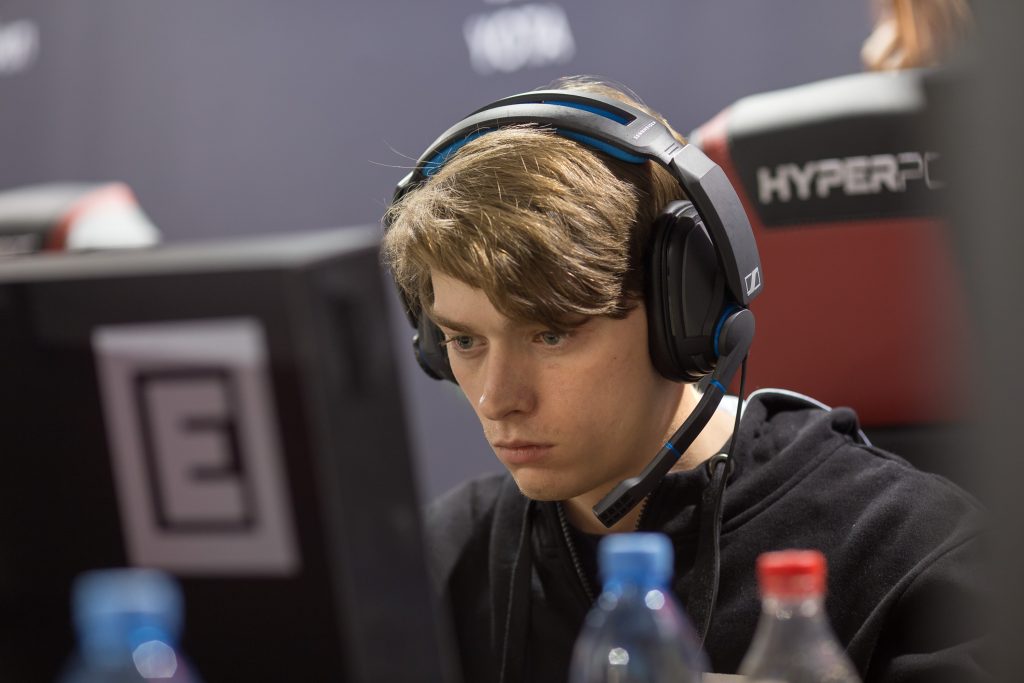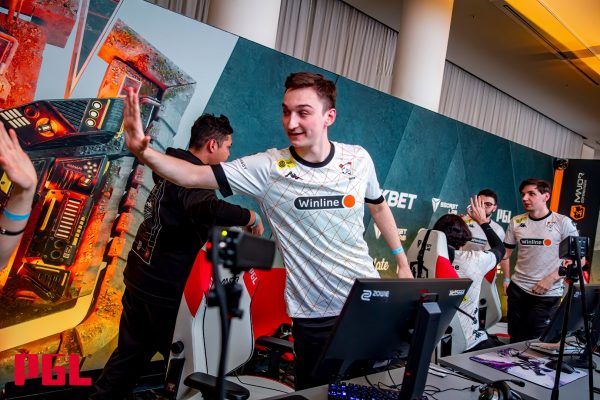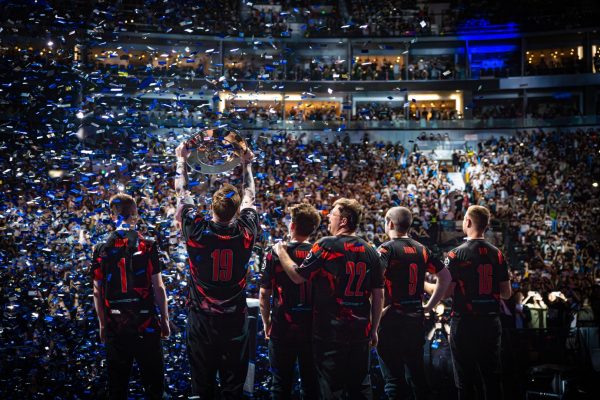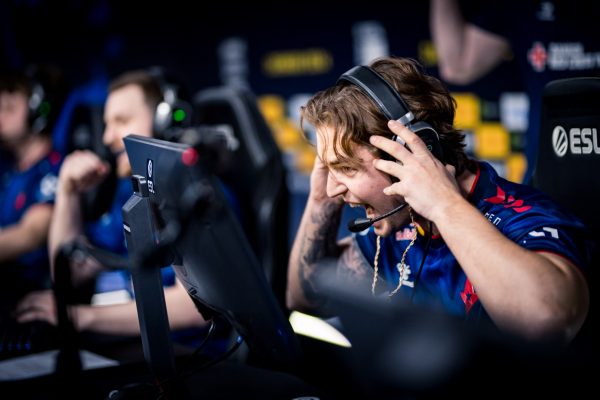On February 5th the newly-launched Counter-Strike: Global Offensive franchised league Flashpoint, formerly code named ‘B Site’, announced its decision to permit previously Valve Anti-Cheat (VAC) banned players the ability to compete in its open qualifiers.
Flashpoint, a new $2mill CS:GO league, have repealed a ruling which will allow VAC-banned players to compete. (Photo courtesy Valve)
Under section 5.1 of Flashpoint’s official rules outlining Anti-Cheat, it states: “Any Player with a VAC ban prior to [February 5] 2018 is allowed to participate in the competition. Any Player with a VAC ban on or after this date is not allowed to participate.”
The amendment falls in course with actions taken by DreamHack and ESL in 2017, which issues a two-year probationary period for VAC-banned players in place of its former permanent ban. With this ruling, a number of fan favorite players with recorded VAC bans, and other integrity controversies dealt prior to the designated cutoff date, will be eligible to compete in the league.
Although a great deal of individuals have spoken out in favor of this amendment, doing away with what is, to some, considered an archaic rule, has cloudy implications.
Cheating in the First Degree
Where the decision Flashpoint made to allow previously banned players becomes a bit dicey is identifying where exactly the line of “cheating” gets drawn. Cheating, with its own variety of classifications, is part of a broader problem relating to competitive integrity; his seriousness of which presents itself in varying degrees. Each arriving with repercussions placed on the Counter-Strike ecosystem, and the industry at whole.
Flashpoint will be a historical CS:GO league with $2mill in prize money. (Photo Courtesy Flashpoint)
As mentioned, cheating can appear in all shapes and sizes, to varying degrees and effect. The most common and referred to in Counter-Strike is the VAC ban – a ban dealt by Valve’s in-game detection software. Any third-person software that offers a player an advantage in CS:GO -whether be it a wall hack, aimbot, mobility or player awareness cheat – can result in a ban preventing those affected from playing in matchmaking.
On the professional side, the company took a hardened position that a VAC ban would disallow a player from competing in future Valve-sanctioned events. A small handful of the more prominent Counter-Strike event organizers would additionally follow suite of Valve, preventing VAC-banned players from competing at their events.
Fixing – the manipulation of a match to end in a predetermined result – falls under the umbrella of cheating. However, fixing has more severe connotations, which we’ll explain a little later. Match-fixing is typically used in hand with betting. Match-fixing takes advantage of heavy odds and weak players to bribe them into purposefully losing a match. Sportsbooks who have accepted the fixed bet will more likely than not feel its effects the harshest, though its occurrence rips away any sport’s competitive integrity the more it continues to happen. Tampering with money lines is dangerous business. The high-risk, high-reward nature of the operation has been known to lure in young players and rupture careers.
The problem with Flashpoint’s decision to allow previously VAC-banned players into its league is not with the ruling itself. It is rather the indistinctive guidelines for what should be standard in high-stakes leagues and Counter-Strike as a whole.
Drawing the Line
The Flashpoint rulebook doesn’t explicitly state its position on matters regarding match-fixing in relevance to cheating. It was, however, revealed Josh ‘steel’ Nissan, infamously involved in the iBUYPOWER match-fixing scandal in August 2014, received an invitation to compete in the North American open qualifier.
Although far from the first (or last) case of match-fixing in CS:GO, the event between iBUYPOWER and NetcodeGuides sent tremors through the professional landscape, resulting in seven Valve-issued bans. Believed to be orchestrated by the organization’s co-founder Casey Foster and ex-professional player Derek “dboorN” Boorn, iBUYPOWER was offered a number of high-priced weapon skins to throw their match against NetcodeGuides. Evidence was later provided to journalist Richard Lewis who confirmed Foster and Boorn placed several bets against iBUYPOWER on CSGO Lounge by using up to nine smurf accounts.
The iBUYPOWER team was a young, talented group who made a strong case for themselves as a worthy international contender in 2014. However, when reports were confirmed and Valve swung its ban hammer, their careers were cut short. Perhaps too short, as many argued, following an indefinite ban from Valve-sponsored events, including the Major Championship. Beyond the Major, this group would also be forbidden from playing in events organized by FACEIT, ESEA, CEVO, DreamHack, ELEAGUE, and ESL.
With steel’s pardon, it’s assumed his former teammates and others involved in the iBUYPOWER scandal would be made eligible to compete in the league. This includes Keven “AZK” Larivière, Sam “Dazed” Marine and perhaps most notably, Braxton “swag” Pierce. Though suffering the same consequences, swag’s ban was heavily-debated due to his young age – willfully throwing the aforementioned match at just 17-years old. For years, swag’s ban was argued against in light of his ripe age with reform urged in this instance, and like cases to follow. This presented a subjective issue, of whether or not age should be considered in the indefinite banning of a player.

Braxton “swag” Pierce is among those now permitted to compete in the Flashpoint league following its decision to reverse Valve bans. (Photo Courtesy EPICENTER)
Further unanswered questions arise when considering the involvement of individuals outside the server such as NetcodeGuides co-founder Casey Foster. Placing bets and organizing the 2015 match-fixing scandal, we’re left asking ourselves whether or not individuals like Foster will have Valve bans upheld in future Flashpoint competitions?
Regardless of your take on the matter, it’s a looming gray area in Flashpoint’s road map, as with competitive Counter-Strike as a whole. Logistically speaking, those behind the new franchised league will have to meet with Valve somewhere down the line and make a firm decision on competitive integrity solutions. Moreover, it’s not clarified whether or not the designated cutoff for VAC-banned players (February 5, 2018) will stand indefinitely, or will shift over time as a two-year ban similar to ESL and DreamHack.
By this logic, some of the game’s worst offenders would be allowed back into the competitive panorama by next year. However, with a firm stance on the appointed time frame, those with mirror-like offenses (or worse) would be permitted to play while others are permanently outlawed purely based on when these actions took place. Either way, the framework of both a rolling, two-year expulsion period versus an indefinite ban after this date has its fair share of poison at each end. To welcome back cheaters, match-fixers, and those caught doping at LAN events with open arms versus firmly punishing a select few.
A decisive answer for the issue may not exist yet, but there’s no shortage of reasons why we should be paying attention to it.
For the Better, or For the Worse?
Whether you’re for or against Flashpoint’s VAC ban repeal is merely a matter of opinion. It’s impossible to decide what is right or wrong, however, it is realistic to address what effects cheating and match-fixing may have on the future of Counter-Strike esports.
Cheating is a disease for any competition. It revokes authenticity, strips away excitement, and most of the time, leaves those investing themselves incredibly disappointed. Think back to the eXTREMESLAND 2018 Finals where OpTic India member Nikhil “forsaken” Kumawat was caught cheating on LAN, dismissing Asian Counter-Strike as a whole by result.
As an industry still heavily-reliant on sponsorships and endorsements, the threat of foul play poses a much more serious complication. Backers of professional Counter-Strike may find trouble supporting an ecosystem where individuals caught red-handed in these detrimental cases are allowed to compete in their leagues.
As one of the most popular esports to bet on, licensed bookmakers play an integral role in the upholding of competitive CS:GO. Both top teams and high level events are supported by betting operators. Although, match-fixing ordeals represent a clear hitch in bookmaker’s plans, many times leading to a cut in profit due to frightened bettors. In its infancy state especially, the underpinning of licensed bookmakers is an asset too imperative to lose to loose integrity enforcement.
Our opinion on Flashpoint’s decision to allow players banned more than two years prior in its competition is partial. What is slightly concerning is the potential message it’s sending and a foggy categorizing of what’s actually considered fair play or a forgivable offense. Many will assume those with reversed bans will maintain competitive integrity, though, the same can’t be said for newcomers seeing damaging cases being excused in premier leagues.
It would be naive to say Counter-Strike hasn’t been hit hard by cheating and match-fixing over the years. It’d be equally as naive to say its condition is better or worse than other competitive titles. Still, CS:GO’s tier-one status in esports embellishes its setbacks. Counter-Strike has gone a good distance without any detected snags as of the last year or two; though, incidents that occur at this point onward as the scene matures will deal a progressively more harmful blow.
Without a clear precedent and finely outlined rules around cheating, match-fixing and the possibility of those offenders competing in the future, CS:GO will continue to face these issues time and time again. As Flashpoint develops both through its season and new ownership stakes, the league will, at some point, be forced to set these boundaries.
Safeguarding the Health of the Industry as a Selling Point
Among the overwhelming amount of cheating cases, degrees of punishment, and event organizers which have a hand in it all, exists one company looking to nurture the competitive landscape as a whole – the Esports Integrity Commission (ESIC). For the last several years, ESIC has worked at safeguarding competitive integrity in esports in a number of different ways. The non-profit organization partners with several tournament operators; most namely, ESL, DreamHack and BLAST. ESIC’s work at these events enforce anti-doping policies and other preventative measures with a zero tolerance policy. A number of esports bookmakers and gambling commissions are also part of ESIC’s network of partners, teaming up to identify suspicious betting activity and give bettors a sense of comfort.
Although, what ESIC does the best is establishes a single, undisputed framework for competitive integrity. A system in which one body, one rulebook, and one commission directs cases of cheating, match-fixing, or any other type of foul play. Not to mention, the group is made up of individuals with years and years of experience in traditional sports integrity – a pedigree we admit would be difficult to match.
As many forecasted, ESL Pro League would clash hard with FACEIT’s new, rising league, Flashpoint. While the battle to attract Counter-Strike’s best teams is currently being won by ESL, the war will be ongoing. ESL will have accrued an extra notch in many books when you consider the company’s residency as an ESIC partner and Flashpoint’s lack thereof.
The perception around competitive integrity will continue to be in question until companies get linear about its rules and restrictions. By repeatedly crossing over these clouded boundaries, the lines of cheating, punishment and forgiveness will become more convoluted, more perplexing, and more damaging to Counter-Strike.


